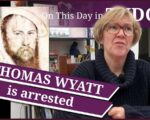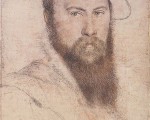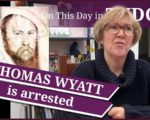
On this day in Tudor history, 17th January 1541, courtier, diplomat and poet, Sir Thomas Wyatt the Elder, was arrested and sent to the Tower of London after being accused of corresponding with Cardinal Reginald Pole, and referring to the prospect of Henry VIII’s death.
Wyatt was taken to the Tower and it looked like he’d be executed, but he was saved by Queen Catherine Howard, but at a huge cost.
Find out more about what Wyatt was accused of, how he escaped execution and what he had to agree to, in this talk…
[Read More...]


